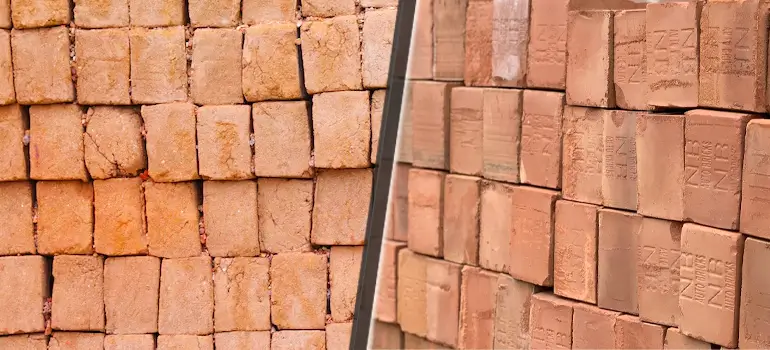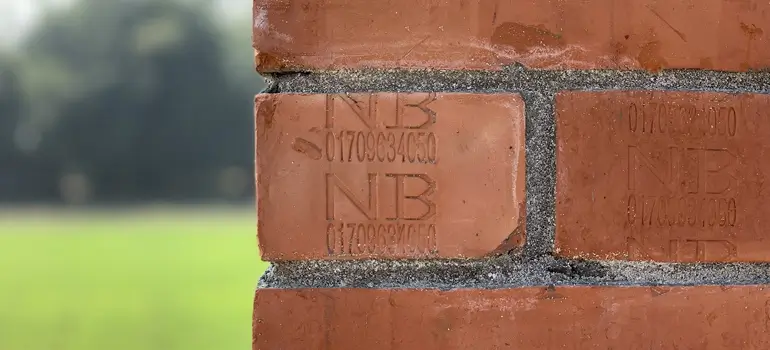Auto Bricks vs Traditional Bricks: Which is better for your construction project?
In the construction world, brick is the fundamental unit; that's why it's a core concern to select perfect bricks. Quality bricks are important for shaping a project's quality, durability, and sustainability. With technological advancements, auto bricks are machine-made, environmentally friendly bricks. On the other hand, traditional bricks are made manually. These two types of bricks have different features and vary in production cost. Choosing between auto bricks and traditional bricks can significantly impact project longevity, budget, and environmental footprint.
This blog explores the key differences between auto bricks vs traditional bricks type, highlighting their advantages and drawbacks to help you make an informed decision for your next construction project.
Talk to Expert: 01709-634030
Understanding Auto Bricks and Traditional Bricks
Before choosing bricks for your construction projects, first, you have to understand the nature and features of auto bricks and traditional bricks. Here we precisely define the auto bricks and traditional bricks:
- Auto Bricks: Auto bricks are produced using automated machinery that ensures uniformity, quality, and eco-friendliness. They are often manufactured using a process that reduces environmental impact, often utilizing fly ash, clay, or recycled materials. These bricks go through strict quality checks to make sure they are strong and durable.
- Traditional Bricks: Traditional bricks are usually handmade or fired in small-scale kilns, a process that requires significant manual labor and heat. They are typically produced using clay and are more varied in size, shape, and strength due to less uniform manufacturing standards.
Comparing key aspects: Auto Bricks vs Traditional Bricks
Explore the essential differences between auto bricks and traditional bricks, from manufacturing methods to durability. Discover which option best suits modern construction needs.
Strength and Durability
- Auto Bricks: Known for their strength, auto bricks have high compressive strength, ensuring stability and durability in construction projects. The uniformity in composition and manufacturing makes these bricks less prone to cracking and other issues, enhancing the structural integrity of buildings.
- Traditional Bricks: While traditional bricks are durable, they tend to have lower compressive strength compared to auto bricks. Variability in size and composition can result in weaker areas, affecting the overall stability of structures, especially in taller buildings or areas prone to extreme weather.
Winner:Auto bricks are superior in terms of strength and durability, making them better suited for high-rise buildings and long-lasting construction.
Environmental impact
- Auto Bricks: Auto brick manufacturing is eco-friendly, often utilizing waste materials like fly ash and producing fewer emissions due to reduced kiln usage. These bricks align with sustainable construction practices, minimizing carbon footprints and conserving natural resources.
- Traditional Bricks: The traditional brick-making process is energy-intensive, requiring significant heat from fuel or wood-burning kilns. This process not only consumes more natural resources but also contributes to air pollution, making it less environmentally friendly.
Winner: Auto bricks are more eco-friendly, reducing the environmental impact associated with construction.
Cost efficiency
- Auto Bricks: While the initial cost of auto bricks can be slightly higher than traditional bricks due to the automation and technology involved in production, they often lead to long-term savings. Their strength reduces the need for frequent repairs or replacements, and their precise shape minimizes wastage in the construction process.
- Traditional Bricks: Traditional bricks are typically more affordable upfront, given the simpler manufacturing process. However, variability in quality and size can result in material waste and increased labor costs, potentially leading to higher expenses over time.
Winner: Though traditional bricks are cheaper initially, auto bricks provide better value over time due to durability and reduced wastage.
Consistency in quality
- Auto Bricks: Auto bricks are produced under strict quality control, ensuring uniform size, shape, and strength. This consistency facilitates easier construction, providing a precise fit that minimizes gaps and enhances the structural integrity of buildings.
- Traditional Bricks: Traditional bricks can vary widely in size and quality due to their handmade nature. Inconsistent quality can complicate construction, leading to uneven walls, increased plaster consumption, and, in some cases, weaker structural foundations.
Winner: Auto bricks offer greater consistency, making them the preferred choice for projects requiring precision.
Fire and Water resistance
- Auto Bricks: Auto bricks generally have higher resistance to fire and water damage. This is particularly beneficial in regions with heavy rainfall or in buildings with specific fire-safety requirements.
- Traditional Bricks:Traditional bricks can absorb more moisture due to their porous nature, which may lead to issues such as water leakage, mold growth, or structural weakening over time. While they do offer some fire resistance, it is generally lower than that of auto bricks.
Winner: Auto bricks offer better fire and water resistance, enhancing safety and durability.
Which type of brick is better for your project?
Choosing the right type of brick depends on various factors, including the type of project, environmental considerations, and long-term budget. Here's a brief comparison to guide your decision:
- For eco-friendly, high-rise, or long-term projects: Auto bricks are ideal as they ensure structural integrity, minimize environmental impact, and offer excellent fire and water resistance.
- For short-term or low-budget projects: Traditional bricks might be suitable due to lower upfront costs, but they may not offer the same durability and consistency as auto bricks.

Additional considerations: What else should you keep in mind?
Additional considerations are crucial for thorough decision-making. Here's what you should keep in mind to ensure a comprehensive approach.
- Labor costs: Auto bricks streamline the construction process, potentially reducing labor costs and construction time. Traditional bricks may require additional adjustments, increasing labor costs.
- Maintenance: Auto bricks generally require less maintenance, while traditional bricks may need more frequent repairs, especially in humid or harsh weather conditions.
- Aesthetic requirements: While both brick types can be used in various designs, the uniformity of auto bricks allows for smoother, more precise finishes, which can be beneficial in certain architectural styles.
Why Auto Bricks are the smart choice
When comparing Auto Bricks and traditional Bricks, auto bricks emerge as the superior choice for modern construction. They are well-suited for large-scale, long-term projects prioritizing quality and sustainability with their advantages in strength, eco-friendliness, and durability.
Traditional bricks may still hold value in smaller or low-budget projects, but they fall short of providing the same level of reliability, especially in today's eco-conscious building landscape.
In summary, choosing auto bricks not only contributes to a more sustainable environment but also ensures a safer, longer-lasting structure. For those considering a significant investment in a construction project, opting for auto bricks can prove cost-effective in the long run, balancing upfront costs with durability and reduced maintenance needs.
Start your project with the right foundation
When starting a construction project in Dhaka or beyond, consider the lasting advantages of using auto bricks. Partnering with a trusted supplier like N. Biswas Group guarantees high-quality materials, expert support, and environmentally compliant products. Choose wisely today for strong, sustainable, and future-ready construction.
Call Now at:01709-634030


